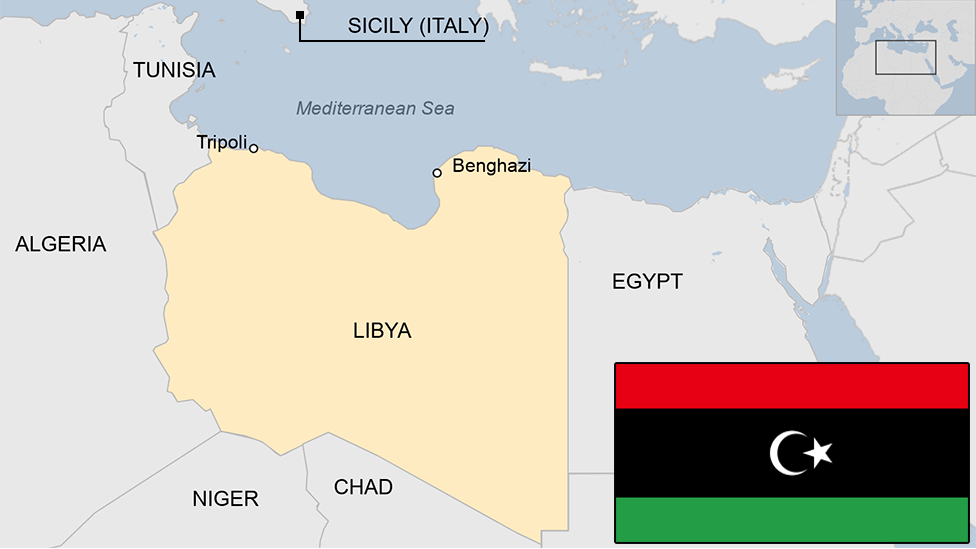Libya's eastern authority freezes women's travel ban
- Published
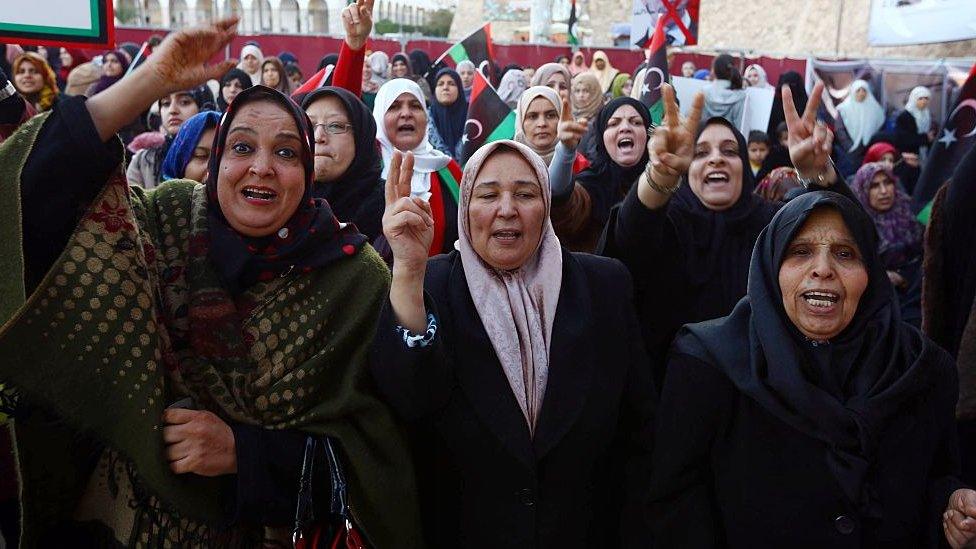
Libyan women have been vocal in politics since the end of Colonel Gaddafi's rule in 2011
The authorities in eastern Libya have ordered a temporary freeze on a controversial travel ban on Libyan women under the age of 60.
The directive, which came into force last weekend, was widely condemned and ridiculed across the country.
Affecting women in eastern Libya, it prohibited those under the age of 60 from travelling abroad without a male guardian.
The authorities had said the ban was for security, not religious, reasons.
A military official claimed it was because some women travelling abroad were in contact with foreign intelligence.
The authorities presented no evidence to back up this claim.
The freezing of the travel ban was announced by the director of East Libya's civil society commission, Abir Mneina, who had held talks with the military chief of staff of Libya's eastern region, Abdelrazzak al-Naduri, on Tuesday.
She told the BBC that officials had been asked to cancel the ban but agreed only to freeze it temporarily and carry out a review.
"He [Mr al-Naduri] said... there are security implications that need to be considered. We said fine, if there are specific security issues then we understand and support that because we are in a state of war and this is an important matter for us all," said Ms Mneina
"So that's why we finally agreed that the directive will be reviewed to ensure that there are no violations against rights and freedoms… Our main aim is to get the order cancelled completely.
"I think we are headed on the path of it getting cancelled. We said that if it is not cancelled we are already preparing a legal statement that will be taken to court."
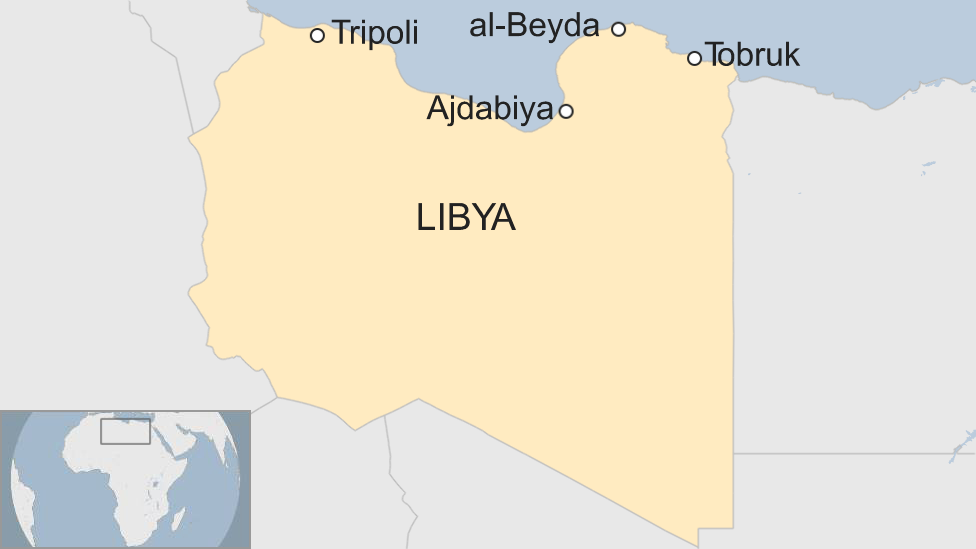
A source in the office of Eastern Libya's chief of staff, who spoke on condition of anonymity, confirmed to the BBC that the order had been frozen.
He said the ban was being reviewed because "it may have generalised the matter too much".
Libya has been in chaos since Nato-backed forces overthrew Col Muammar Gaddafi in October 2011.
Eastern Libya is governed by an administration based in al-Beyda that is not recognised by the international community. It is is under the control of commander Khalifa Hafter who is leading the battle against Islamist militias.
Libya's internationally recognised government is based in the capital, Tripoli.
The travel restrictions highlighted the growing political divide in Libya, with each side enforcing its own rules in the area it controls.
- Published20 February 2017
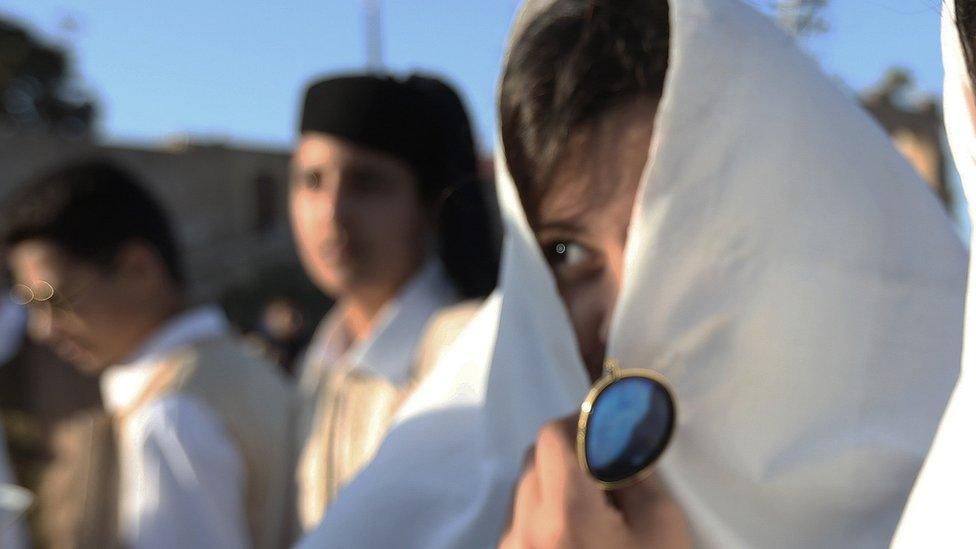
- Published8 April 2019
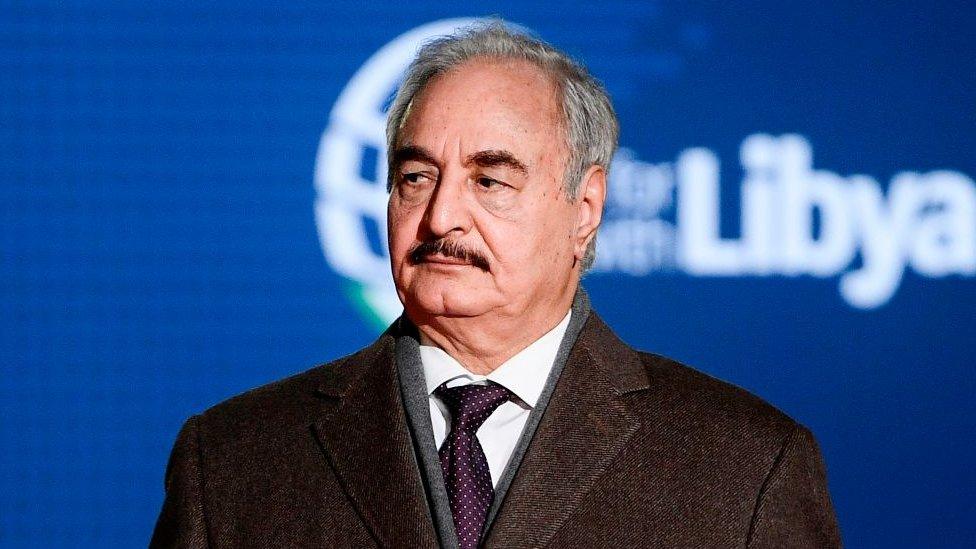
- Published6 December 2016
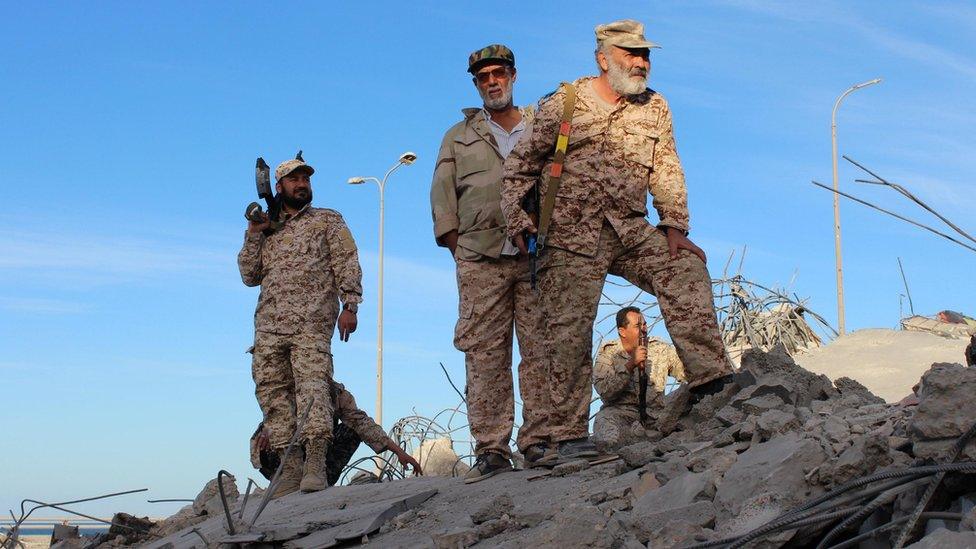
- Published13 September 2023
